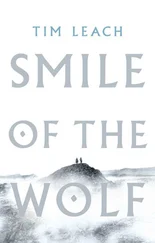He knew they were looking to him for an answer, but he gave them no response, could not bring himself to meet their gaze. He sat low in his saddle, a sour smile upon his face.
They reached the heart of the camp, the great chieftain’s fire where the high tents were pitched. Kai flung up his hand, and for the last time there was the pleasure of command, to hear that company, doubting as they were, halt at his signal.
Kai trotted his horse forward, bowed low in the saddle to the five men who sat there. The great leaders of the clans, richly dressed in iron and gold. Zanticus of the Wolves of the Steppe, bearing a cape of scalps of those he had killed. Pidos of the Shining Company, half-handed and part-scalped from a bloody feud many years before. Sason and Aldis, who had led their clans against each other in an endless war dance for the better part of a decade, but who had sought a brotherhood as soon as the Romans came. Banadaspus of the River Dragon, his own chieftain.
Kai dismounted, pulled his sword, plunged it into the ground before them. He took the banner from the side of his saddle, and he cast that down as well.
‘I have brought you riders for the warband,’ said Kai. ‘I have brought you the women and children who will keep the fire. But I am no man to be their captain, and so I gift my company to you.’
The Five Chieftains watched him, and did not speak. Most of them gave no sign of recognition that he had spoken at all. Only Banadaspus gave any more than that, his head dipping a little nod that was like the press of a blade against Kai’s heart. A gesture of acknowledgement, not of forgiveness.
Kai mounted once more, and addressed the company that gathered behind him. ‘I have delivered you here, as I promised. And now, I am your captain no longer.’
Silence from the company. Until one voice spoke, and simply asked: ‘Why?’
He should have told them then. They had earned that right to the truth. But, at the last, he found he did not have the heart for it.
‘Take a place at the fire,’ he said. ‘Speak to the others, and they shall tell you soon enough.’ He nodded to Gaevani. ‘Or ask him. He shall tell you the tale, I am sure. For I release you from any bond of silence, your oath of service, and you may do what you will.’
Gaevani spat upon the ground. ‘They shall hear the story, I am sure. But it will not be from me.’
Kai looked at him for a moment longer, irresolute. Then he turned away, found Tamura amongst the warband. ‘Now you shall have the other half of that story,’ he said. ‘I have kept my promise.’
A kind of bitter lightness then, as he began to ride away alone, save for the child that clung to the peak of the saddle in front of him. Where there is no prize to claim, where victory, such as it is, brings loss with it, there is only the weary pride of having done what others could not.
Then, from behind a calling of his name.
It was Laimei who spoke – a roll and turn in her voice that had not been there before, for her jaw had healed crooked in a way that marked her speech. But she called out high and clear, and if there was any pain in the speaking she gave no sign of it. She rode forward, the Roman captive riding beside her, for he had been allowed to ride upright as his strength returned.
They looked at each other in silence for a time – her grey eyes that gave nothing away, the hope on his face there for any child to see. For it was the time for forgiveness, if ever it was to come. What dishonour he had earned in her eyes, perhaps having brought them back with iron on their backs would wipe it out. For this time, he had kept his promise.
She waved the Roman captive forward, as she might have invited a horse to drink from a river. When he did not move, she barked a curse and slapped his mount on the flank with a gauntleted hand. The warhorse danced and bucked forward – perhaps it could smell the Roman on its back, and knew he did not belong. But the captive kept his saddle well and brought the horse to Kai’s side.
Laimei spoke again. ‘Take him,’ she said. ‘I have no more need of him.’
‘Is that your command?’
‘I suppose I am your captain now?’ A crooked smile upon her face. ‘Then yes. It is my command. A last command, for you have no place in the warband now.’
Kai and Tomyris, their prisoner in tow, made their way to a tented wagon, the nomad’s wandering home. Inside to the comforting darkness, all about him the smell of sweat and leather, the hard wood of the base of the wagon beneath, the softness of the felt against his fingers when he reached out to touch the folds of the tent. Some strange family they made – the shamed man, his daughter, their prisoner.
Above all, there was the longing for sleep – Kai could not remember ever having been so tired, not even in the great weariness that comes after hard battle. But he knew that there was something that he must do first.
He shook the armour from his back, a dead and weighted second skin. Little light came through the thick fabric of the tent, and he found what he sought more through touch than sight. Fingers hunting over horn and iron, until he found the captain’s mark upon the cuirass.
A scraping, rasping sound filled the air, the soft echo of a battle sound. The familiar scratch of metal against metal, as Kai cut against the mark with his knife – clumsy strokes with no force behind them, for he had no heart for the task. The knife danced and skittered, and at any moment it seemed that it would skip from the metal and plunge into his hand.
A strange voice in the tent, speaking with a heavy accent: ‘I will do. Let me.’
Kai started at the sound – it was the Roman who had spoken. The fair-haired man reached forward, a beckoning hand. ‘I will do,’ he said again, for it seemed he knew a little of their language.
Kai laid the armour gently on the ground, the knife on top. He put his head to his hands so he would need to see no more.
He heard a snapping of fingers, a barked command – Tomyris, ordering the prisoner to work. A moment later, that scrape of metal once more. Firm and steady as the Roman patiently, carefully, began to cut away that hero’s mark.
The hour was late in Aquincum. Here and there upon the walls of the fort one could see a sentry half asleep, the head nodding and rising, nodding and rising, as regular as the turning of a water wheel. But though most of the Romans slumbered, the Emperor did not. And neither did the Sarmatian that he spoke with, the one picked out from the prisoners.
The barbarian wore the Roman garb now, at the Emperor’s insistence. One might have mistaken him, at a distance, for some friend or consort, if it were not for the glint of iron at his ankles, the long braided hair and the tattoos upon his cheeks.
Slaves entered, bearing wine, and the barbarian held up his cup eagerly, spilling the red liquid with a trembling hand. When first he was brought to these chambers, he had refused to drink. They always did, the Emperor found. They feared poison or some spell cast over the wine. Or they refused from pride, wanting no luxury or charity from their captors. But always, at last, they broke. He could see the sadness come over them – the blankness in the eyes like dusty glass beads. The knowledge that they would never be free again. And so, if that was to be their life, and the only pleasure left to them the call of the wine, then why not drink?
On previous nights, they had spoken of many things. The Emperor asked no secrets of war of him, no questions of numbers or generals or strategy, for no matter how deep into the cups the barbarian fell, always he remained guarded, and what he thought of as secrets he would not give out (though, as the Emperor well knew, torture made all men speak eventually). But of the world of the plains, the life of horse and spear, the old songs and stories of heroes and gods and monsters – of these things, the barbarian might speak. And as the Sarmatian told of the life that he had lost, he did not seem to notice the Emperor’s lips were moving, silently repeating the words to himself. And later, when the barbarian was taken away or had fallen into a deep drunken stupor, the Emperor would scratch the words onto wax. Like a sculptor carving at marble, one patient stroke of the chisel at a time, until at last his vision of the Sarmatians was complete.
Читать дальше
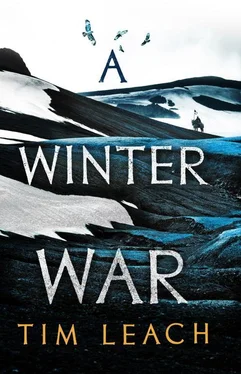


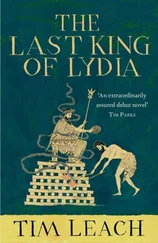

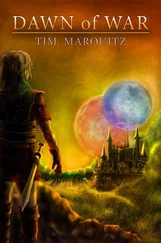

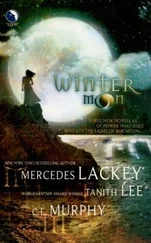
![Стюарт Слейд - Воины зимы [Winter Warriors ru]](/books/401383/styuart-slejd-voiny-zimy-winter-warriors-ru-thumb.webp)
